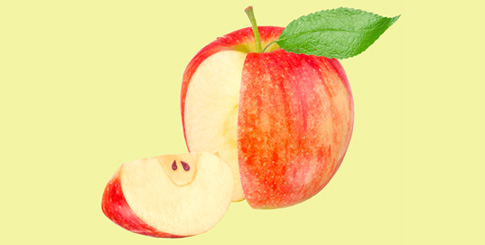Troubles & Struggles
For the past 20 years pomologists (apple scientists) have not only bred apples for better taste and texture, but sought a solution to flesh browning due to oxidation. And although Okanagan Specialty Fruits in Summerland, British Columbia, has found an answer, supply and consumer response has been mixed.
Yes, Arctic apples don’t turn brown after slicing or when exposed to oxygen, due to enzyme reduction during genetic modification. Unfortunately, for many, genetic modification and genetically modified organisms (GMOs) remain controversial. Although Arctic apples were approved by the U.S. Department of Agriculture, some groups are vehemently against genetic modification and frighten many retailers away from carrying the nonbrowning apples.
“The Arctic apple has been approved, is being planted in limited quantity, and should be available soon in limited quantity,” says Todd Fryhover, president of the Washington State Apple Commission. “However,” he concedes, “I know of no Washington growers planting this apple.”
David Henze, president of Fourth Leaf Fruit Company in Yakima, says his company doesn’t currently market Arctic Apples and doesn’t have plans to do so. But his business, one that partners with independent growers, takes the position that if biotechnology is favorable to one of the supplier’s growers and provides a crop that generates benefits for the grower, environment, and consumer—it’s a good thing.
Symms says the Arctic apple is an interesting concept and she found the flavor outstanding when she tasted one. Consumer reaction and acceptance, however, are key. “It’s difficult to know if the ‘GMO’ label will affect sales and acceptance in the marketplace,” she notes.
Although the success of Arctic apples may worry some growers, another pro-blem keeps all of them up at night.
Lack of labor
Apples are still picked by hand, as most technology is still incapable of consistently identifying ripe fruit. Having the workers needed for harvest depends on what transpires with state and federal immigration laws, along with various other impediments to get workers to the orchards.
According to Henze, labor remains at the forefront of all the issues in the apple industry. Fourth Leaf tries to maintain its workforce with a consistent and ongoing packing schedule, opportunities for advancement, paid vacation, quarterly events and celebrations, and English lessons for anyone interested. Workers can also move from the orchards to the packing line for added job security throughout the year.
“Labor is always a huge issue and it’s not getting any better,” observes Pepperl. “At Stemilt, we use H-2A [guest worker program] for orchard harvest workers, continue to build housing for the workers as we build orchards, and have platforms instead of ladders to increase productivity and safety. We also treat people as our biggest asset, which all companies should do.”



